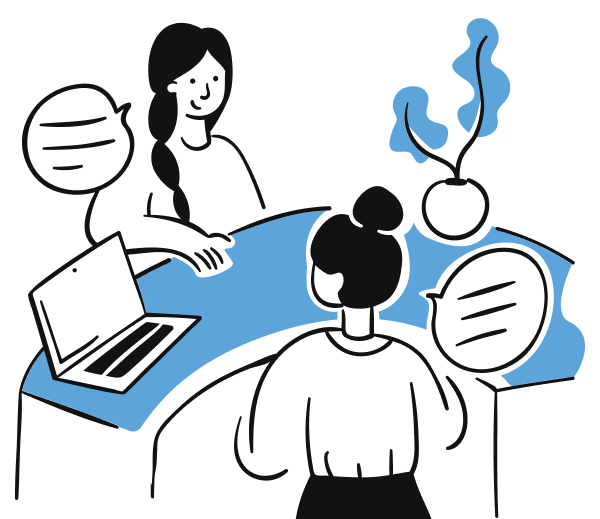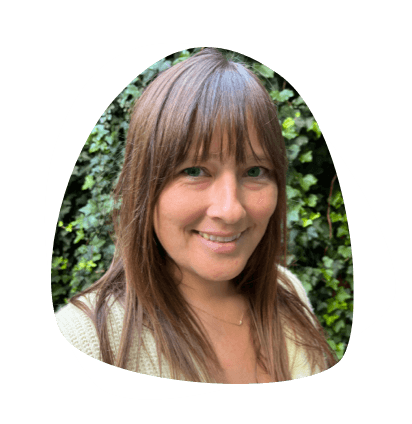You have schemas and modes in schema therapy. In this article you will read what these are and how they are related. In addition, you will find a complete overview of schemas and modes.
What are schemas and modes?
Your schemas determine the way you look at yourself, others and the world around you. Schemas consist of beliefs, memories, physical sensations and emotions. Most schemas arise in your childhood. They are shaped by your childhood experiences, your temperament and the extent to which your basic needs are met.
Basic needs of a child
Positive experiences give you functional schemas that help you move forward in life. Schedules that benefit you. In some cases, schedules do not function. This happens when you missed something in your childhood and not all your basic needs were met. After all, every child’s needs include safety, security and love. These non-functioning schemas are also called ingrained patterns.
The influence of schedules on your state of mind
Your schemas cause you to be in a certain mode: a certain version of yourself. Modes are temporary states of mind depending on the schedule activated. You can find yourself in a particular state of mind for shorter or longer periods of time. And they alternate. A schedule that is not functioning puts you in a negative mode. A state of mind that works against you.
Which schemas are there?
There are 18 different schemas, which are divided into 5 domains. Below is an overview of the schema domains with their corresponding schemas:
Schema domain 1 | Disconnection and rejection
When you experienced a lack of protection, security and safety in your childhood, you quickly feel unsafe with or rejected by others. Schemes that fit this are:
- Abandonment/Instability: Experiencing the unreliability of the presence of important people around you. You fear losing loved ones.
- Distrust/abuse: You assume that pain is inflicted intentionally. You expect that others will abuse or humiliate, cheat or hurt you.
- Emotional deficiency: You assume that others will not adequately meet your desires for emotional support, warmth, and attention.
- Inadequacy/shame: You feel inferior, weaker, and less worthwhile than others. You are sensitive to rejection and criticism. In the company of others, you feel insecure and uncomfortable.
- Social isolation / alienation: You feel like you don’t belong. You do not feel part of “the group.
Schema domain 2 | Impaired autonomy and impaired functioning
Too little freedom to be allowed to make decisions independently in your childhood can lead to this non-functioning schema. Your caretakers had little confidence in your thinking or actions. Or you grew up in an unstimulating environment. Schemas belonging to this schema domain are:
- Dependence/Incompetence: You are convinced that you are unable to act independently in everyday things. For example, you fear that you can’t solve problems on your own or can’t take care of yourself.
- Vulnerability to illness and danger: You are overly fearful that you will be affected by a disaster, illness or, for example, a plane crash.
- Tangle/underdeveloped self: You are so emotionally involved with your parents or guardians that you are underdeveloped as an individual. You have the belief that without the tangle you cannot survive or be happy.
- Failure: You are convinced that you are a failure. Everyone else is better than you. You think you are stupid and do not experience successes.
Schema domain 3 | Weakened boundaries
Weakened boundaries occur, for example, when too few boundaries were set in the family. Or when not enough direction was given. Also, when the feeling of “being more than someone else” prevailed in the family, this may lead to weakened boundaries. Schemas belonging to this domain are:
- Demanding/Greatness: You have the belief that you are more than another. That you are entitled to privileges or do not have to follow certain rules. This results, for example, in behavior where you push your own way, without concern for the needs of another.
- Insufficient self-control / self-discipline: You avoid discomfort such as pain, confrontations or responsibilities. Even if it is at the expense of yourself.
Schema domain 4 | Focusing on others
Orientation toward others arises when as a child you were accepted only under certain conditions. For example, you had to behave in an exemplary manner to receive love. Schemas in this domain are:
- Submission: You easily push aside your own needs and desires to receive appreciation from others. Another consequence is that you repress emotions such as anger, bottling up anger and becoming passive-aggressive.
- Self-sacrifice: You are always concerned with satisfying the needs of another and thus want to avoid guilt in yourself.
- Seeking approval/recognition: You are overly concerned with seeking approval or attention from others. Your self-esteem depends on this.
Schema domain 5 | Excessive vigilance and inhibition
Van overmatige waakzaamheid of inhibitie is sprake wanneer je spontaniteit en impulsen onderdrukt door (zelf)opgelegde regels of verwachtingen. Wanneer dit ten koste gaat van je eigen plezier en levensgeluk is dit onwenselijk. Schema’s uit dit domein ontstaan bijvoorbeeld wanneer in een gezin erg streng werd opgetreden of gestraft. Dit leidt in sommige gevallen tot prestatiedrang of perfectionisme. Schema’s die hierbij passen zijn:
- Negativism/Pessimism: Your thoughts focus on the negative aspects of life. You downplay positive thoughts.
- Emotional inhibition: To avoid disapproval or shame, you suppress spontaneity, feelings or your need to communicate.
- Strict standards / being overcritical: You have a belief that you must be perfect. That you must meet the highest standards.
- Punitive: You have difficulty forgiving yourself or others. You have the belief that mistakes should be punished severely. You are easily impatient or angry when others fail to meet your expectations.
Which modes are there
There are 20 different modes; the states of mind that occur as a result of an activated schedule. These are divided into groups. Below is an overview of the modes:
Children’s modes
- Vulnerable child: For example, you feel lonely, despondent, helpless, worthless, vulnerable.
- Furious child: You feel intensely angry or impatient when your needs are not met.
- Raging child: You no longer control your anger and harm others or objects.
- Impulsive child: You act in a selfish or uncontrolled manner to get your own way. You have no patience and do something before you have thought it through.
- Undisciplined child: You can’t bring yourself to do things you find annoying. Doesn’t it hold your interest? Then you can’t bring yourself to do it.
- Happy child: You are content, happy and feel loved. Feeling safe and understood. You feel strong and confident.
Maladaptive coping modes
- Willless compliant: You allow another to be above you and you sacrifice yourself for the other.
- Detached protector: You block your own feelings and needs.
- Detached self-susser: You numb yourself with sedatives or activities to feel better.
- Self-glorifier: You make yourself bigger to avoid feeling small. You behave selfishly or are condescending toward others.
- Bullying and attack: To avoid being hurt or controlled yourself, you hurt and control the other person. Under the guise of “attack is the best defense.
Unadapted parent modes
- Punishing parent: You punish yourself or others. This may manifest itself in self-injury. You feel you deserve punishment.
- Demanding parent: Only perfect is good enough. You want everything sort out and extremely high standards for yourself because you cannot make mistakes.
Healthy adult mode
- Healthy adult: In this mode you are caring and appreciative of others and yourself. You set boundaries for child modes. You combat and, if necessary, replace inappropriate coping or inappropriate parent modes. The healthy adult supports healthy behaviors and functioning such as working, caring and parenting, and taking responsibility. You stand up for what you want without exaggerating or shortchanging another.
To find out what modes you are in, you fill out a questionnaire. This is the Schema Mode Inventory (SMI). There are some other modes, which are not (yet) included in this list:
- Angry protector: In angry protector mode, you are convinced that it is dangerous to admit your feelings or express your opinions. You keep others at bay with hostile or surly behavior because you are afraid of being hurt.
- Overcontroller: You don’t trust anyone and look for something behind everything. You are overly vigilant.
- Paranoid mode: You want to protect yourself from threats you experience (rightly or wrongly). You don’t trust anyone and think other people are your enemy.
- Deception and manipulation: In this mode, you lie and deceive and pretend otherwise, with the goal of fulfilling your own needs.
- Predator: Someone in predator mode eliminates his or her enemy or obstacle, in ruthless, emotionless ways.
- Attention and recognition seeker: You exhibit exaggerated behavior to seek other people’s attention and recognition.
Personal advice from a psychologist?
Do you recognize yourself in the patterns and do they repeatedly get in your way? Schematherapy can help break ingrained patterns.
-
Have you tried many things yourself and still experiencing symptoms? Do you want to know how schema therapy can help you? Feel free to call us at 085-1308900 or contact us online. This way you can feel if there is a click and if you feel comfortable.
-
At iPractice, you will work with 2 psychologists. Treatment consists of both online contact and regular consultation room sessions at one of iPractice’s locations. Or read more information about the intake and treatment process at iPractice.
-
With a referral letter from the general practitioner and an official diagnosis according to DSM-5 guidelines, almost every insurer will reimburse the cost. See which health insurance companies reimburse our care.


 Nederlands
Nederlands




